In fewer than three weeks, voters across the UK will head to the polls to pick a new government. All 650 seats in the House of Commons are up for grabs in the snap election called by Prime Minister Boris Johnson, and parties across the country are targeting areas they think could swing the balance of power in their direction.
The policies and pledges that politicians hope will help win them a majority in the Commons — and the chance to form the next government — are being set out in their manifestos. While Brexit has dominated politics for months, issues like health, childcare [1], the environment, and the economy are also big battlegrounds for the major parties.
The launch of these documents brings all the photo opportunities we've come to expect from modern politics, but it's what's inside these manifestos that will help us all decide who gets the keys to Number 10 Downing Street. As the General Election 2019 enters its final phases, here's a look at the promises in key areas from some of the main parties contesting this year's poll, to help you decide who gets your vote.
The Conservatives
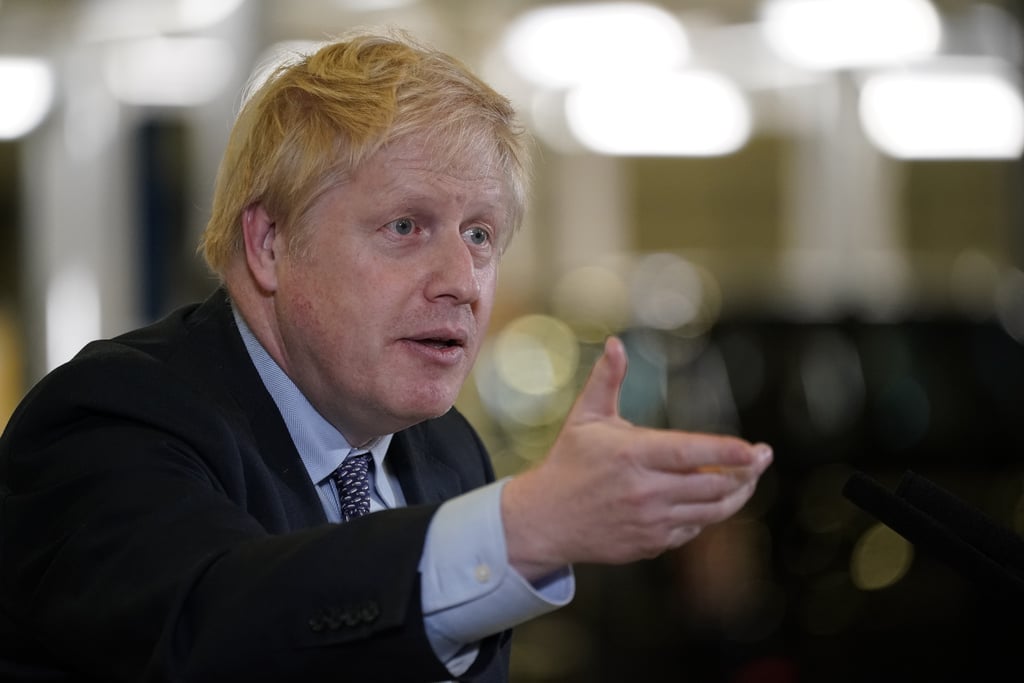
The centre right party, officially known as the Conservative and Unionist Party [2], had 298 MPs in the Commons when the election was called, meaning it would need to win another 28 seats on Dec. 12 to govern on its own. In the last parliament, the Tories relied on a "Confidence and Supply Agreement" with the DUP after failing to win an outright majority in the 2017 election.
The party is led by Boris Johnson, who faces the ballot box as Prime Minister for the first time, having taken control of the Tories and the country in July 2019 when Theresa May stepped aside. He called this poll after well documented battles over Brexit.
- Brexit: the Tories promise to take the UK out of the EU by the end of January 2020, the latest deadline set for Brexit.
- Health: the manifesto pledges 50 million more GP appointments every year. It also commits to 50,000 new nurses for the NHS, 40 new hospitals over ten years and an end to hospital car parking charges for disabled and terminally ill patients.
- Education: the party is committed to boosting funding by £14 billion and raising teachers' starting salaries to £30,000 a year while tuition fees would be frozen.
- Childcare: there would be a new fund of £1 billion to provide more childcare before and after school and the holidays.
- Housing: insulation in 200,000 social housing properties would be improved.
- Environment: the UK would reach net zero carbon emissions by 2050 while transporting plastic waste outside the area covered by the Organisation for Economic Co-operation and Development would be banned.
- Social Care: no one will have to sell their home to pay for care and the party pledges to form a cross party consensus on care plans in the future.
- Crime: there's a promise to put 20,000 more police officers on the streets and immediate arrest for those carrying and using knives.
- Personal Finance: there would be no rises in Income Tax, VAT or National Insurance under a new Tory government while pensions will go up by 2.5% a year.
- Economy: there will be lower taxes for businesses while the Tories also promise post-Brexit free trade deals that will improve the quality of life in the UK.
- Transport: the party promises a fund of £2 billion to tackle potholes and another £29 billion to improve roads while there is also a pledge for a new rail line between Manchester and Leeds.
- Immigration: the Tories commit to an Australian style points system to determine who is allowed to enter and remain in the United Kingdom.
The full Conservative manifesto [3] was published on Nov. 24.
The Conservatives launched their manifesto on Nov. 24, with the slogan "Let's Get Brexit Done".
The Labour Party
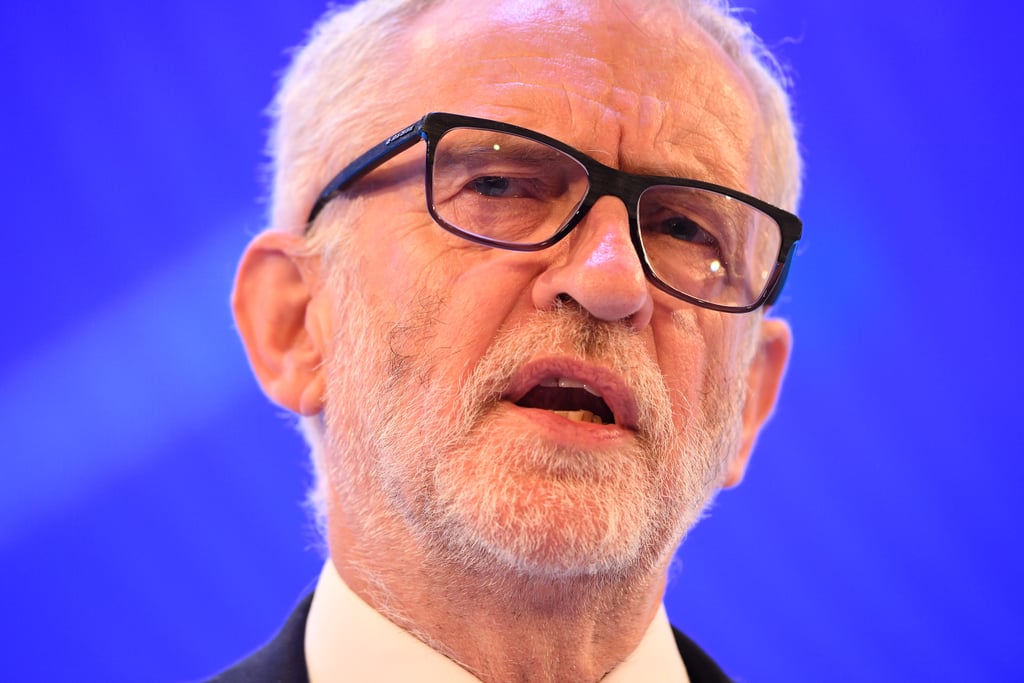
The Labour Party [4] sits to the centre left of British politics and last held power between 1997 and 2010.
The party had 243 of the 650 seats in the Commons when the election was called and would need to win 83 on top of that to win a majority.
Jeremy Corbyn has led the Labour party since 2015. The party launched its manifesto on Nov. 21, with the slogan "It's Time for Real Change".
- Brexit: Labour promises to negotiate a new deal with Europe within three months, and will also ask voters whether they want to back that or stay in the EU within six months of taking power.
- Health: prescriptions would be free for everyone while the party is promising to up the budget for the NHS by over 4% every year.
- Education: tuition fees for university students would be scrapped while schools funding would go up by £10 billion. Labour also wants to stop public schools being able to claim charitable tax status.
- Childcare: Labour wants 30 free hours of preschool education a week for all 2-4 year olds by 2024. It also plans to recruit 150,000 extra staff to work in early years provision and put an emphasis on a graduate led workforce.
- Housing: the party wants to build 100,000 new council homes a year by 2022. It also wants to introduce a Department for Housing and bring in more rights for people renting privately including open ended tenancies.
- Environment: the party wants to speed up the timetable for the UK reaching zero net emissions with most being reached by 2030.
- Social Care: Labour wants to bring in a National Care Service to support the ageing population
- Personal Finance: the minimum national wage would rise to £10 per hour within twelve months while pension age would be pegged at 66
- Economy: Labour wants to nationalise some of the biggest names in British industry including Royal Mail, the National Grid, water firms, the railways and BT's broadband services. It's also pledging a Green Industrial Revolution that will lead to job creation in areas including transport and energy.
- Transport: the party wants to put local councils in charge of bus services again with free travel for the under 25s. HS2 will be completed with plans to extend it to Scotland.
- Immigration: Labour pledges to end indefinite detention, review conditions at detention centres and set up safe, acknowledged routes for asylum seekers.
There are more details in the full Labour Party manifesto [5]
.
The Liberal Democrat Party
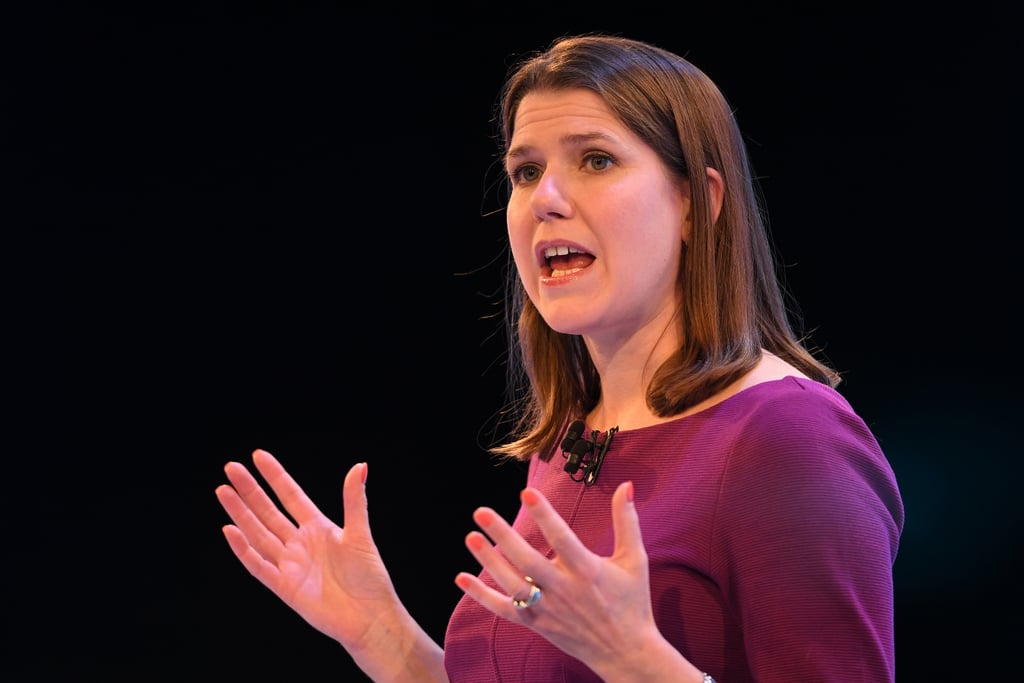
The Liberal Democrat Party [6] traditionally aims to occupy the middle ground between the Conservatives and Labour. In 2010, the party went into coalition with the Tories but lost power in the 2015 election.
The Liberal Democrats are led by Jo Swinson who took on the role earlier this year. When the election was called, the Lib Dems had 20 MPs, and they'd need to win 306 more seats to form a government.
The party is focused on the UK remaining within the European Union and launched its manifesto on Nov. 20, with the slogan "Stop Brexit, Build a Brighter Future".
- Brexit: the Lib Dems would revoke Article 50 immediately, stopping Brexit. The party says the move would save £50 billion which could be spent on public services.
- Health: the party promises to end the shortfall in GP services by 2025 through training more doctors. Mental health would be treated with the same urgency as physical health.
- Education: the manifesto promises 20,000 more teachers for England and pledges to replace SATs tests with a wider range of performance results.
- Childcare: all children aged between two and four would be eligible for 35 hours a week free care for 48 weeks a year.
- Housing: the manifesto commits to building 300,000 new homes every year in England and proposes a "Help to Rent" loan to help first time tenants, under 30, to secure accommodation.
- Environment: At least 80% of the UK's electricity would come from renewable sources by 2030, the same year the party promises all new cars will be electric. The manifesto also promises more taxes on frequent fliers.
- Social Care: the party promises to raise £7 billion every year for health and social care funding by putting up income tax by 1p in every pound.
- Crime: the Lib Dems want to legalise cannabis for adult use, saying it would help weaken the power of the drugs trade.
- Wages: there's an election pledge to increase rates for workers on zero hours contracts by 20%.
- Economy: the manifesto states three priorities - investing £130 billion in infrastructure including hospitals and schools; introducing 'Skills Wallets' which would provide £10,000 of funding for training across an adult's working life and bringing in a wellbeing budget which would see government decisions based on the impact on wellbeing as well as economic indicators.
- Transport: season tickets and peak time fares on all rail services would be frozen for the duration of a Lib Dem-led government while the party also wants to complete HS2. There's also a pledge to increase bus services in rural communities.
- Immigration: the party wants to resettle 10,000 unaccompanied refugee children in the UK over ten years. It also commits to end indefinite detention.
The party is billing its election document [7] as "Jo's Place for the Future".
The Green Party of England and Wales
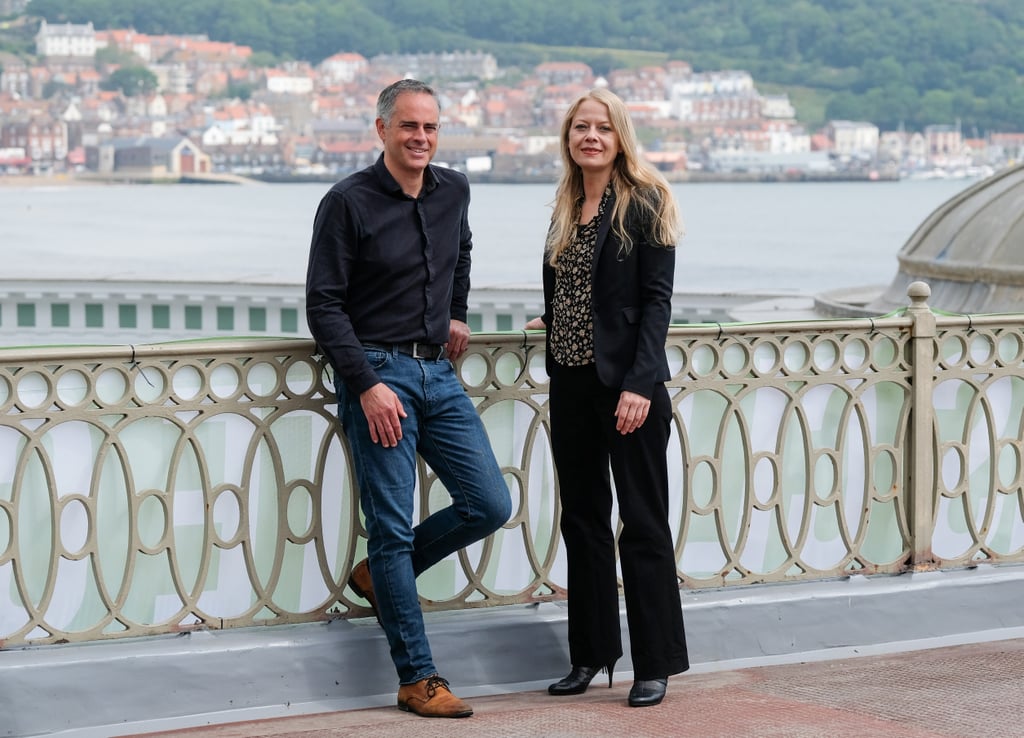
The Greens [8] had just one MP in the last Commons, their former co-leader, Caroline Lucas, but will be running candidates in 500 constituencies this time round.
The party is now jointly led by Jonathan Bartley, once famous as a jazz musician, and Sian Berry. Neither has ever been elected to Parliament before. Its main focus has always been the environment but its taken a strong anti Brexit stance and has made election pledges on all main issues.
There are separate Green parties in Scotland and Northern Ireland. The Greens in England and Wales chose the slogan "If Not Now, When?" for the manifesto launch which took place on Nov. 19.
- Brexit: the Greens want a second referendum on whether the UK should leave the EU and would back a vote to remain.
- Health: the NHS would get an extra £6 billion a year until 2030. The party also promises to focus funding on building new community health centres and ensure mental health is treated with the same urgency as physical health.
- Education: tuition fees would go under a Green government while student debt would be cancelled for all those who paid £9,000 a term to go to university.
- Childcare: all children aged 9 months or older would be entitled to 35 hours a week free childcare.
- Housing: the Greens want to create 100,000 energy efficient council homes every year and improve heating and insulation in all new and renovated properties.
- Environment: the party promises to stamp out all greenhouse gas emissions in the UK by 2030, ban all single use plastic in packaging and bring in a tax on meat and milk to limit dairy farming and cut methane emissions.
- Social Care: the manifesto promises local councils would share £4.5 billion a year to help provide support to over 65s in their own homes.
- Crime: the Greens aim to halve the prison population and focus on preventative measures. They want to replace short term prison sentences with a restorative justice system.
- Personal Finance: the Greens would bring in a Universal Basic Income of £89 a week for all adults with more for pensioners, single parents and people living with disabilities.
- Economy: the manifesto pledges millions of new jobs in areas including renewable energy and land management as part of a "Green New Deal". They also promise to remove fossil fuels from the economy and measure success on wellbeing as well as economic factors.
- Transport: the party wants to spend £2.5 billion every year on new cycle ways and cut train and bus fares to make public transport cheaper than car travel. It would also ban adverts for flights.
- Immigration: the Greens pledge to end indefinite detention, close detention centres and change immigration rules so there is no minimum income criteria for people moving to the UK.
The Green Party manifesto [9] is available on their website and the party has also made it available there in an easy read version as well as in an audio format.
The Scottish Nationalist Party (SNP)
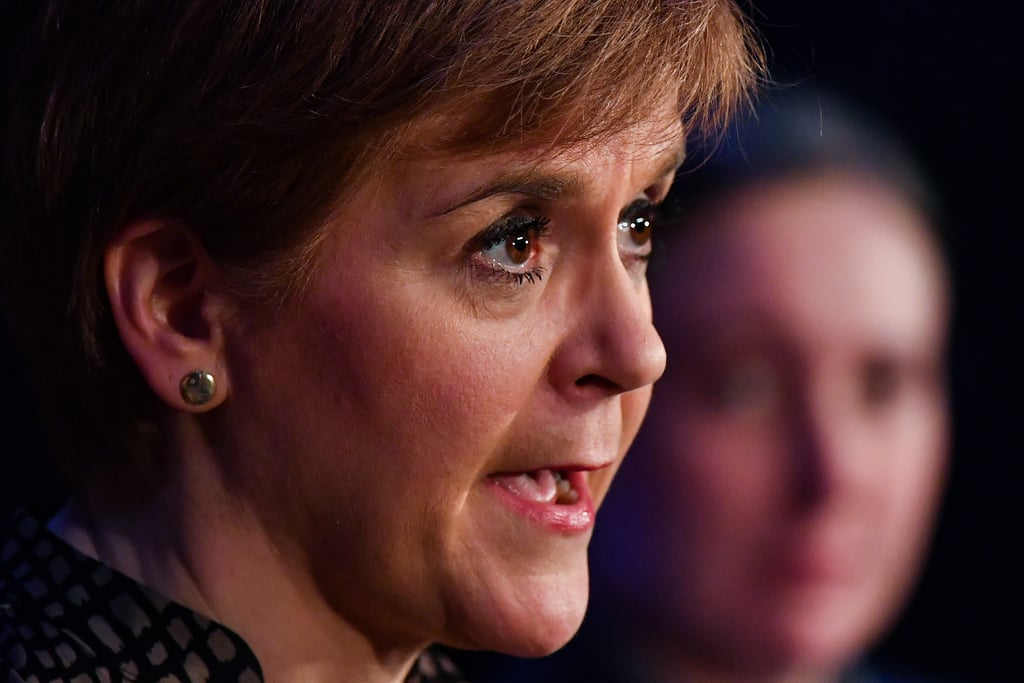
The Scottish Nationalist Party was the third largest in the Commons at the end of the last parliamentary session. It only stands in the 59 Scottish constituencies - in 2017, the party won 35 seats.
Even though the party can't win an outright majority in the Commons, it has already said it will be open to a "progressive alliance" with other groupings at Westminster should the Dec. 12 poll end in a hung parliament where no one has an overall majority. But it's ruled out any deal with the Conservatives.
Its leader, Nicola Sturgeon, is also First Minister of Scotland as the SNP is the largest grouping in the country's devolved assembly. The party, described as socially liberal, campaigns actively for Scottish independence. The party [10] hasn't yet launched its formal election manifesto but it's announced plenty of policies it wants voters to decide on.
- Brexit: the SNP opposes the UK leaving the EU and has said it wants Scotland to stay in Europe.
- Health: the party has consistently pledged to keep the NHS in public ownership while it has recently made high profile commitments to increasing spending on mental health services. It also wants to stop the NHS to be part of any UK government trade talks.
- Education: previous commitments from the SNP include making ability to learn more important than ability to pay when it comes to university education.
- Childcare: the SNP has introduced increases in childcare provision before and aims to see all 3 and 4 year olds accessing 30 hours of free support every week by 2020.
- Housing: the party has recently underlined its commitment to building more affordable homes in rural areas in Scotland as well as increasing the amount of social housing available across the country.
- Environment: the SNP has made increasing recycling a priority and it's focused on plans to reduce greenhouse gas emissions in Scotland to zero by 2045.
- Social Care: free personal care for those who need it and increased budgets for programmes supporting carers have been past SNP priorities.
- Crime: the party has previously committed to increased funding for Scottish police and has made tackling domestic abuse, including psychological, a priority.
- Personal Finance: past pledges include reducing youth unemployment by 40% by 2021 and increasing the Real Living Wage for all workers over 18.
- Economy: the SNP has been vocal in its plans to end austerity measures previously.
- Transport: ahead of its manifesto launch, the SNP campaigned for full control over Scotland's rail system to be devolved to its parliament and pledged to reduce carbon emissions from trains to net zero by 2025.
- Immigration: the SNP is calling for Edinburgh to have full control of immigration policies in Scotland and has previously pledged to bring in a Scottish visa which would tailor criteria for moving to the UK to suit Scotland's needs.
Plaid Cymru
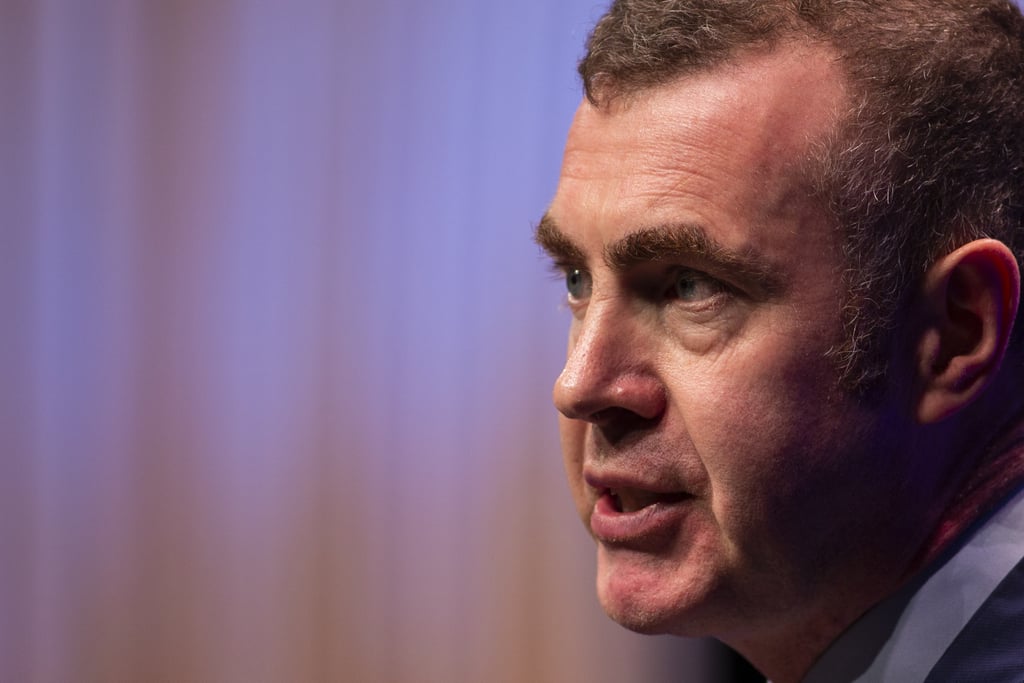
Plaid Cymru [11], "the Party of Wales", only stands in Welsh seats. It returned four MPs to the last House of Commons. This time round, it won't be contesting all of the 40 constituencies in Wales as part of a plan with the Lib Dems and the Greens to try and maximise the return of pro-EU parties.
Adam Price has been Plaid's leader since 2018 and he is also a member of the National Assembly of Wales where the party is the second biggest grouping behind Labour.
The party, which identifies as socially democratic, wants Welsh independence and launched its manifesto on Nov. 22 with the slogan, "Wales, It's Us". Many of its proposals apply only to Wales.
- Brexit: Plaid Cymru is committed to a second referendum on whether the UK should leave the EU.
- Health: the party says it will provide 1,000 new doctors as well as 5,000 new nurses and 1,000 more NHS dentists.
- Education: there are pledges of another £300 million a year for Welsh schools as well as a subsidy for students from Wales who study at Welsh universities.
- Childcare: there would be universal free childcare for 40 hours a week and a new payment worth £35 per child, per week for low income families.
- Housing: the party promises rent relief for those spending 30% or more of their income on rent and pledges investment in environmentally
- Environment: there are pledges to make Wales carbon and single use plastic free by 2030.
- Social Care: the party promises free social care for the elderly and vulnerable.
- Crime: Plaid Cymru wants policing devolved to Wales and the creation of a new Welsh justice system. It also proposes a new commission to look at decriminalising drugs.
- Personal Finance: it wants to increase National Insurance contributions for top earners. It's also pledging to stop over 75s losing their free TV licences
- Economy: the party promises to invest £15 billion investment in renewable energy, digital technology and transport to create a green economy to create thousands of jobs in Wales.
- Transport: all of the main rail lines in Wales would be electrified by 2030
- Immigration: Plaid Cymru wants migration policy devolved to the Welsh Assembly to allow it to set its own quotas and targets. It also promises to tackle all forms of forced work.
Plaid Cymru's manifesto [12], both a Welsh and an English version, is on their website.
The Democratic Unionist Party (DUP)
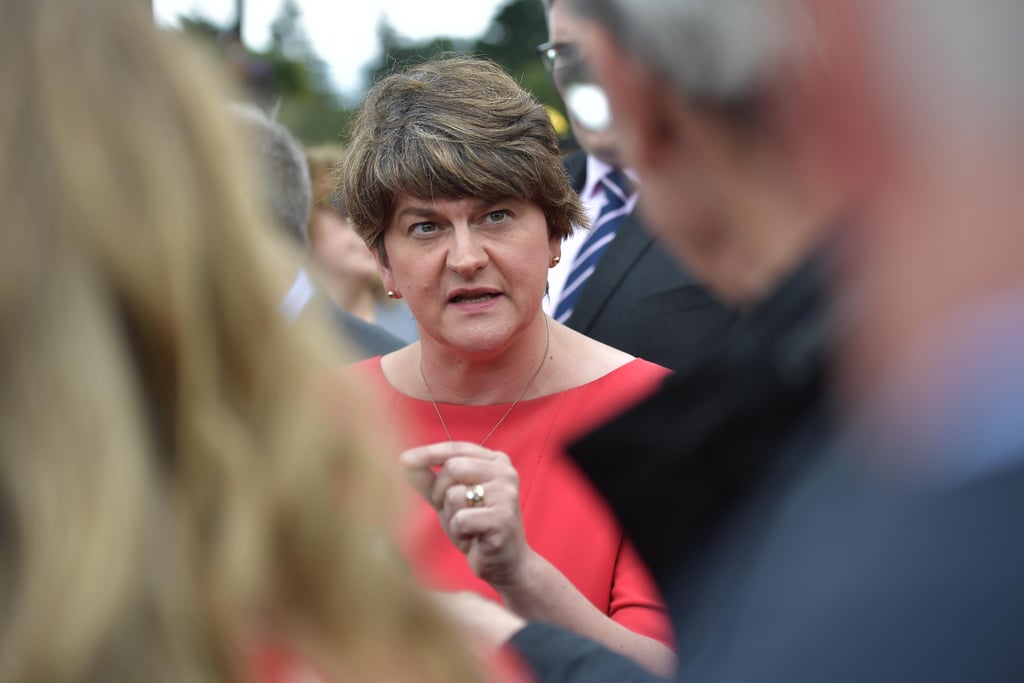
The Democratic Unionist Party and its 10 MPs played a major part in the last parliament after Tory Prime Minister, Theresa May, struck a "Confidence and Supply" deal with them to retain her hold on power. The DUP agreed to support the Conservatives on votes in the Commons on a case by case deal.
The party only stands in Northern Ireland where it is the main Protestant political grouping. Since 2015, it's been led by Arlene Foster who was also First Minister of Northern Ireland until the Stormont Assembly was suspended in January 2017.
The DUP has been described as socially conservative. It is vociferous in its support for Northern Ireland remaining part of the United Kingdom although many of its policy documents focus on issues relating only to Northern Ireland.
- Brexit: the DUP wants the UK to leave the EU but opposes the current deal as it means different roles for Northern Ireland and the rest of the UK
- Health: the party remains committed to the NHS being free at the point of delivery and argues for more investment and focus on preventative health measures. It also remains committed to banning abortion.
- Education: its focus is the Northern Ireland education system where it has argued for better tailoring of subjects to suit pupils' needs to tackle underachieving.
- Childcare: the party has campaigned before on introducing 30 hours of free childcare for all 3-4 year olds for 38 weeks of the year with plans to extend that to 2 year olds. It also wants to introduce baby boxes to Northern Ireland.
- Housing: the DUP has previously pledged to increase funding in social and affordable housing.
- Environment: past commitments from the party include increasing air pollution monitoring and increasing recycling rates.
- Social Care: the party has previously pledged that the way adult social care is administered across the whole UK must be fair and sustainable. It is committed to developing social care as a career choice.
- Personal Finance: the DUP's focus on the job creation in Northern Ireland has previously focused on areas including digital technology.
- Economy: the party's pledges are focused on the Northern Ireland economy but wider issues it had supported previously include an emphasis on skills strategies to enhance employment opportunities and putting technology at the centre of new training commitments.
- Transport: the party wants to increase bus travel and build more cycleways.
The DUP's official website [13] has full details of all its ongoing policy pledges.